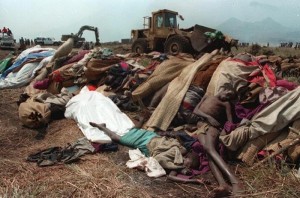 Extrait de l’ouvrage: Gene SHARP (2003), There Are Realistic Alternatives, The Albert Einstein Institution, Cambride, MA; 54 p.
Extrait de l’ouvrage: Gene SHARP (2003), There Are Realistic Alternatives, The Albert Einstein Institution, Cambride, MA; 54 p.
Pour consulter l’ouvrage complet, veuillez cliquer sur There Are Realistic Alternatives
Violence in society and politics, whether in the form of war, terrorism, dictatorship, oppression, usurpation, or genocide, is widely recognized as a grave problem.
All the proposals to solve the problem of violence, or particular expressions of it, have been unsuccessful. It is probable that the problem remains unsolved because such proposals have been based on inadequate understandings of its nature. Without understanding a problem, it is difficult, if not impossible, to solve it.
The objective of this essay is to explore a different perspective on the nature of the problem of widespread violence in society and politics that suggests what will be required for its resolution.

We need to analyze the conditions under which it will be possible to reduce drastically the reliance on military and other violent means of conflict. We need to examine why violence is so widely regarded as necessary for good causes as well as for bad ones, and how fundamental change away from that syndrome might be achieved.
The perspective in this essay is simple, but perhaps fundamental to solving the problem of violence in political and international conflicts.
It is important to recognize that conflict in society and politics is inevitable and, in many cases, desirable. Some conflicts can be resolved by mild methods, such as negotiation, dialogue, and conciliation methods that involve compromise. These are feasible when the issues at stake are not fundamental. Even then, the resolution of a conflict by negotiation is more often influenced by the relative power capacities of the contenders than by reasoned joint assessment of where justice lies.

However, in many conflicts fundamental issues are, or are believed to be, at stake. These are “acute conflicts.” They are not deemed suitable for any resolution that involves compromise. In acute conflicts at least one side regards it as necessary and good to wage the conflict against hostile opponents. Acute conflicts are often believed to be waged to advance freedom, justice, religion, or one’s civilization, or to resist and defeat hostile violence. Hostile violence may be applied to impose oppression, injustice, or dictatorship. Hostile violence also may be applied to attack one’s moral or religious principles or human dignity, or even to threaten the survival of one’s people.

In acute conflicts at least one side regards submission, capitulation, or defeat as disastrous for its principles, convictions, whole society, and at times even to life itself. In such situations, people believe it is necessary to wage the conflict as strongly as possible.
